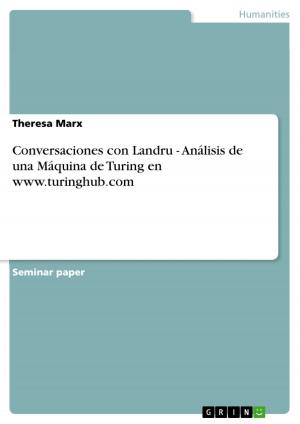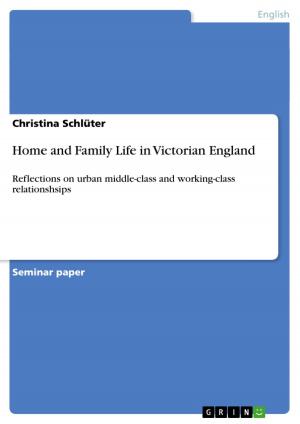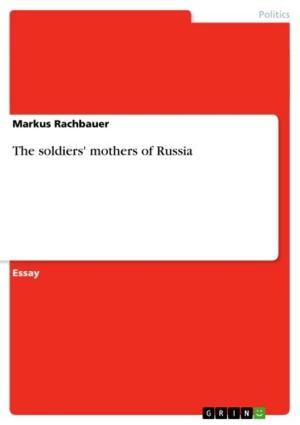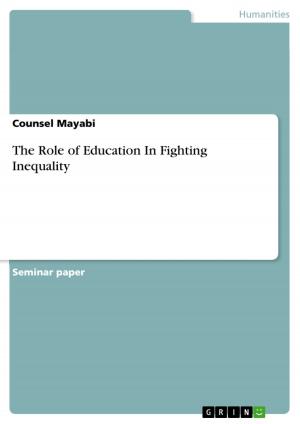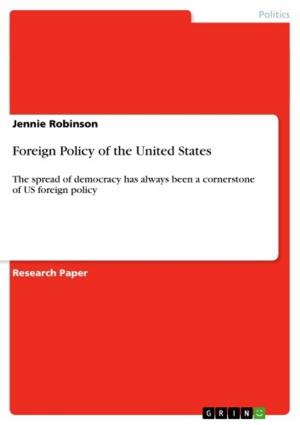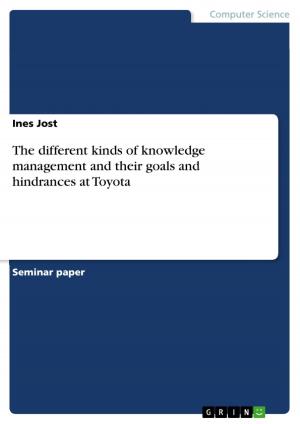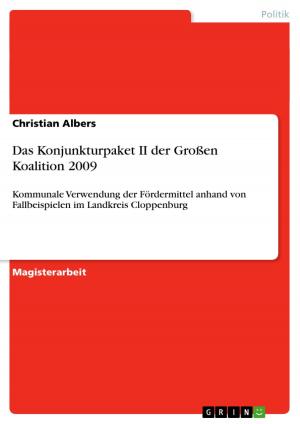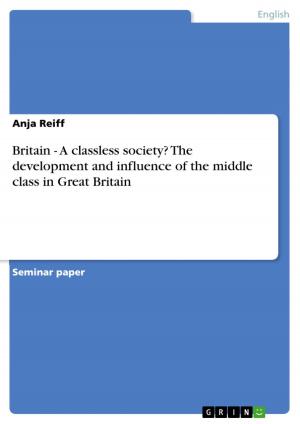An examination of the extent to which Rousseau reconciled the claims of the individual and the community
Nonfiction, Social & Cultural Studies, Political Science, Politics, History & Theory| Author: | Anne Thoma | ISBN: | 9783638313049 |
| Publisher: | GRIN Publishing | Publication: | October 8, 2004 |
| Imprint: | GRIN Publishing | Language: | English |
| Author: | Anne Thoma |
| ISBN: | 9783638313049 |
| Publisher: | GRIN Publishing |
| Publication: | October 8, 2004 |
| Imprint: | GRIN Publishing |
| Language: | English |
Seminar paper from the year 2004 in the subject Politics - Political Theory and the History of Ideas Journal, University of Warwick, course: Political Theory from Hobbes, 12 entries in the bibliography, language: English, abstract: A free man, according to Rousseau, is independent, responsible, morally competent and master of his own will. Freedom is man's essential property. The political community, on the other hand, is to invoke in the citizen a feeling of social affiliation and duty rather than a sense of individuality. Most important, citizenship presupposes the right to subject every member of the society to the law, which is produced by the general will, that is by the permanent aspiration of the common good. In The Social Contract (1762), Rousseau sets out to reconcile the claims of freedom and the constrains that arise with the necessary establishment of political authority: What humans need is 'a form of association which will defend and protect [...] the person and goods of each associate and in which each, whilst uniting himself with all, may still obey himself alone and be as free as before'. In his opinion, the social contract can bring about such a change by means of law, that is by allowing every citizen to vote 'on matters of common interest' in an assembly. The regulations thus set up are an expression of every single man's will and therefore binding for all. Those who do not subject to it voluntarily will be 'forced to be free'. Instead of reconciling the competing claims, Rousseau seems to have erected a verbal paradox. The aim of the following essay is to show to what extent, if at all, the paradox is the solution to the competing claims of the individual and the community. I will begin with a description of the state of nature, the loss of it and the subsequent unsatisfactoryalternative. Those are factors which make another form of political association indispensable. Then, I will introduce Rousseau's problematic concept of socio-political integration, followed by two major concepts of freedom according to Isaiah Berlin. Finally, I will argue that the solution of the paradox, the unification of liberty and citizenship, hinges primarily on the definition of freedom and in a wider sense on the weighting of obstacles to the practicability of Rousseau's theory. In my opinion, a reconciliation of the claims of the individuals and the community is possible only in civil but not in moral and liberal terms.
Seminar paper from the year 2004 in the subject Politics - Political Theory and the History of Ideas Journal, University of Warwick, course: Political Theory from Hobbes, 12 entries in the bibliography, language: English, abstract: A free man, according to Rousseau, is independent, responsible, morally competent and master of his own will. Freedom is man's essential property. The political community, on the other hand, is to invoke in the citizen a feeling of social affiliation and duty rather than a sense of individuality. Most important, citizenship presupposes the right to subject every member of the society to the law, which is produced by the general will, that is by the permanent aspiration of the common good. In The Social Contract (1762), Rousseau sets out to reconcile the claims of freedom and the constrains that arise with the necessary establishment of political authority: What humans need is 'a form of association which will defend and protect [...] the person and goods of each associate and in which each, whilst uniting himself with all, may still obey himself alone and be as free as before'. In his opinion, the social contract can bring about such a change by means of law, that is by allowing every citizen to vote 'on matters of common interest' in an assembly. The regulations thus set up are an expression of every single man's will and therefore binding for all. Those who do not subject to it voluntarily will be 'forced to be free'. Instead of reconciling the competing claims, Rousseau seems to have erected a verbal paradox. The aim of the following essay is to show to what extent, if at all, the paradox is the solution to the competing claims of the individual and the community. I will begin with a description of the state of nature, the loss of it and the subsequent unsatisfactoryalternative. Those are factors which make another form of political association indispensable. Then, I will introduce Rousseau's problematic concept of socio-political integration, followed by two major concepts of freedom according to Isaiah Berlin. Finally, I will argue that the solution of the paradox, the unification of liberty and citizenship, hinges primarily on the definition of freedom and in a wider sense on the weighting of obstacles to the practicability of Rousseau's theory. In my opinion, a reconciliation of the claims of the individuals and the community is possible only in civil but not in moral and liberal terms.

